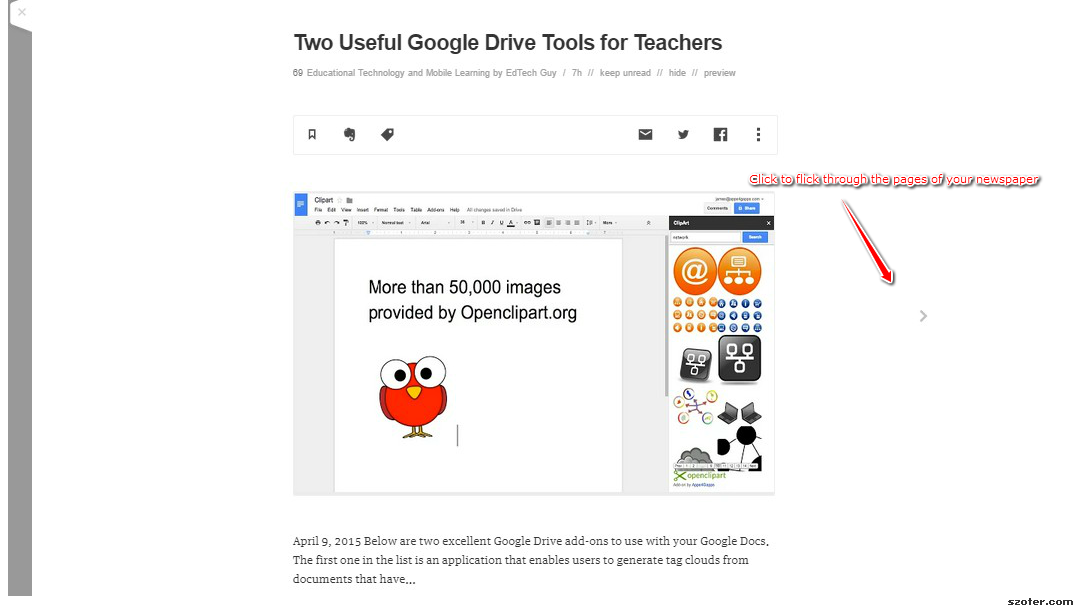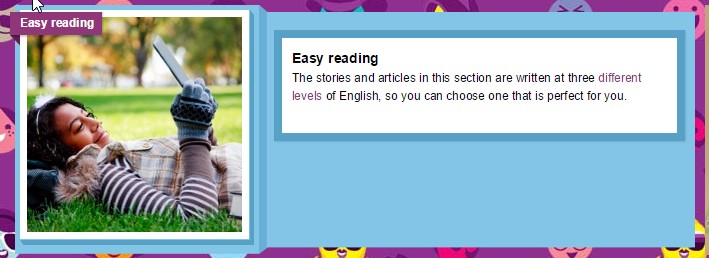Isn’t that what everybody would like? Isn’t it a good reason to read every day? In this post I am sharing with you a wonderful tool that is basically a newsreader with wonderful customizable features. The idea is to encourage students to read every day the things they like to read about.
The benefits of reading when learning a language are many and nobody can deny that. When you read you:
– acquire new vocabulary in a natural way
-learn to infer meanings
-learn to punctuate
-write better
-speak better
– learn the grammar in context
We, as teachers, tend to ask our students to read mainly graded books or the texts in their textbook. We certainly feel confident our students won’t be struggling to understand or won’t get demotivated because they cannot easily grasp the meaning of the words.
On the other hand, I firmly believe we need to show our students how to develop strategies to encourage autonomous learning. It is essential if we want our students to keep improving when the course finishes.
Whenever a student asks me, “Are there any compulsory books to read this term?” I never fail to remember the 50 or 60 books I had to read if I wanted to have a chance at passing some certain subjects at university. I used to be keen on reading but having to compulsorily read, I would say “swallow” those books chosen by somebody else turned me, for some years, into someone who would refrain from getting close to a bookshop, let alone a library.
For this reason, I never choose the books my students have to read. We go to the school library together and choose the ones they find most appealing from their level section. I encourage them to read regularly, every day if possible, and not to use the dictionary every single time they don’t know a word, as this would discourage them. Instead, I ask them to try to guess the meaning and only use the dictionary if it blocks comprehension or it appears frequently in the book.
Reading books is Ok, but what about magazines, blogs, newspapers… In this post, I would like to share with you a tool to motivate students to read every day and the key to motivation is READING WHAT THEY LIKE.
The tool I use is called FEEDLY . It ‘s for me the best way to organise and read my favourite sites on the Internet. It’s mainly a newsreader and it’s highly addictive. Everything on the same place with a very nice layout. Imagine Feedly as a newspaper with only the news you are interested in. You feed Feedly with online sites that interest you.In this sense I recommend my students to feed it with a variety of sites including news, fashion, cooking, IT, learning languages …etc and why not, gossip.
Feedly is customizable and the only thing you need to do is Click on Add content, paste the url of the blog or site you want to have in your newspaper. Can I suggest you try adding this blog and this other one 🙂 to get started?


If you want to know more about how Feedly works, here is a very visual tutorial here .
Are there any sites or blogs you would recommend? Please, let me know







